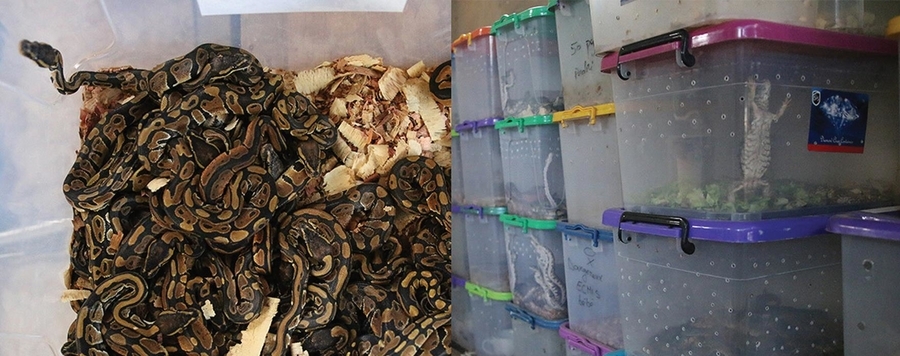
A review of Ball Python and other reptile trade from Togo, West Africa
Our review of the CITES trade database confirmed that the ball python is the most exported species by Togo; with 1,657,814 live individuals – comprising 60% of all live reptiles – reported by importing countries since 1978 (almost 55,000 annually since 1992). In total, 99% of the ball pythons legally exported from Togo under CITES were intended for commercial use, presumably as exotic pets. Since the turn of the century, wild-sourced snakes exported from Togo have been largely replaced with ranched snakes, to the extent that in the last 10 years 95% of these live exports were recorded using CITES source code "R" with the majority destined for the USA. We found discrepancies in the CITES trade database that suggest ball python exports were consistently underestimated by Togo and that both ranched and wild-sourced ball python annual quotas have been exceeded on multiple occasions including as recently as 2017. Furthermore, our field visits to seven of these "python farms" revealed that they are also involved in the commercial trade in at least 46 other reptile species, including eight that are already involved in formal CITES trade reviews due to concerns regarding their sustainability and legality. Ranching operations in West Africa were once thought to provide a degree of protection for the ball python; however, in light of recent research, there is growing concern that ranching may not confer any significant net conservation benefits. Further scrutiny and research are required to ensure the long-term survival of wild ball python and other reptile species populations in Togo.






